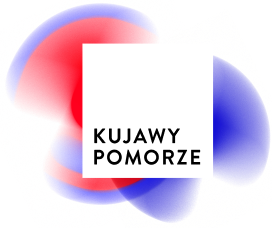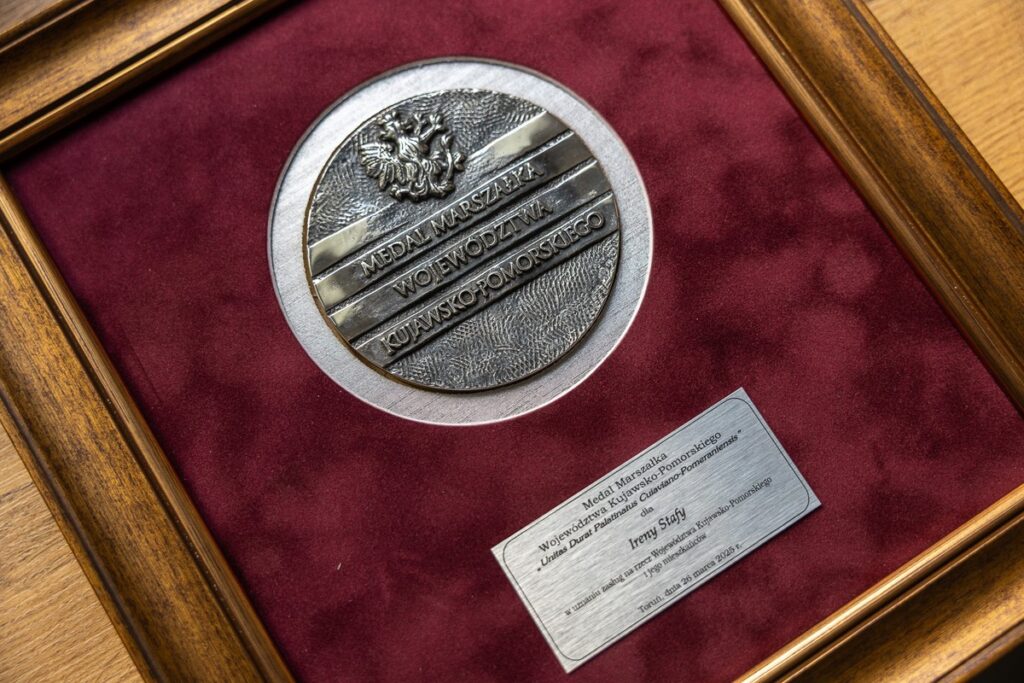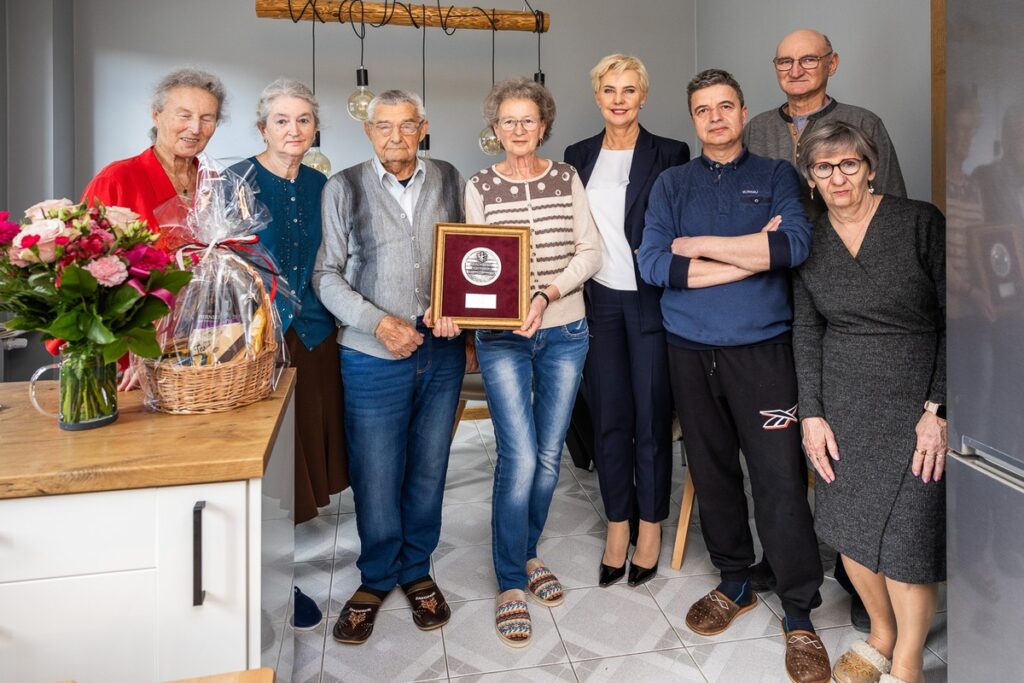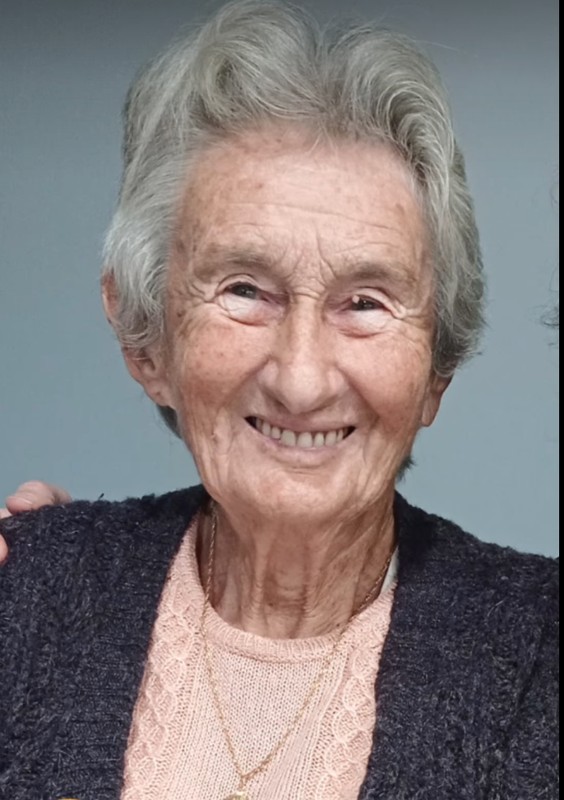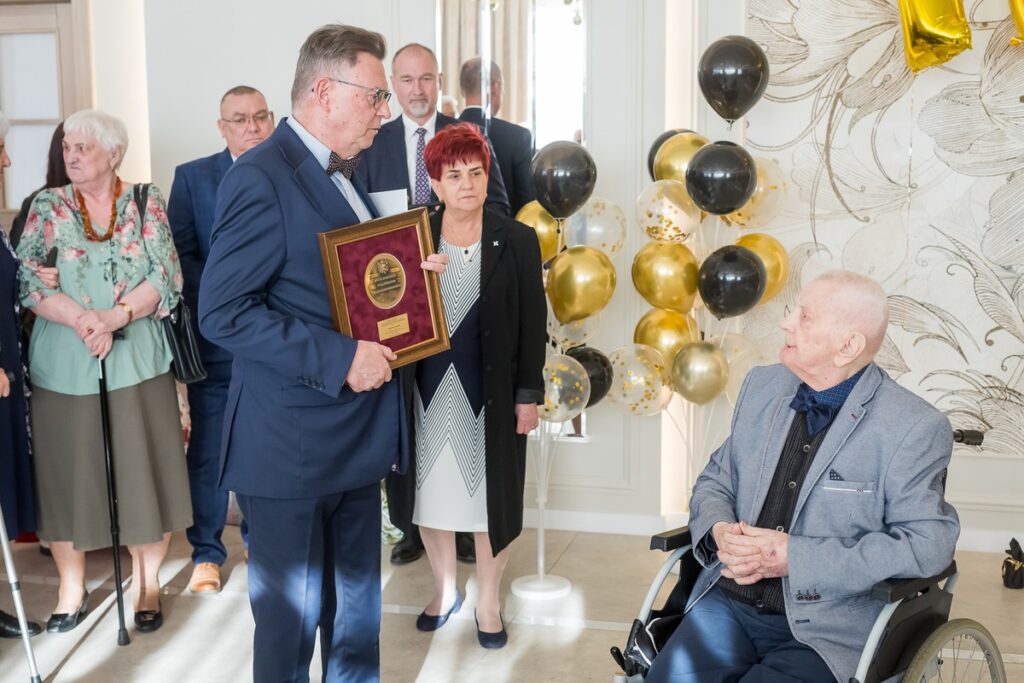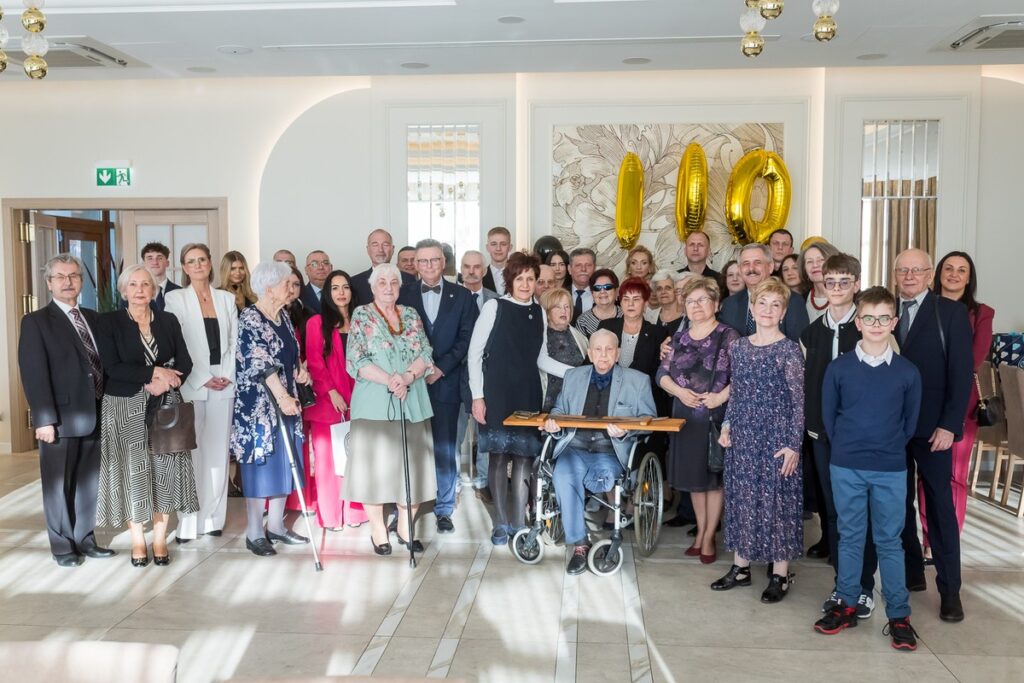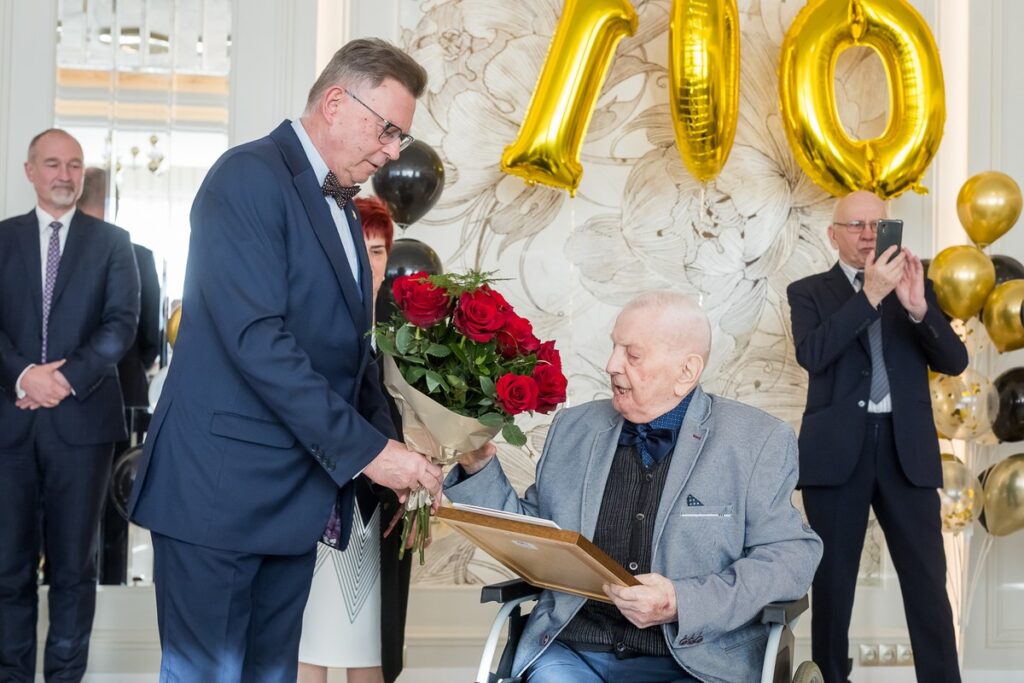
Two Hundred Years!
There were congratulations, wishes, and memories that brought back past decades. Mrs. Irena Stafa from Toruń, a woman with a great heart who spent her entire life helping others and creating a warm home for many, and Mr. Stanisław Szostak, a soldier of the Home Army who fought in the Battle of Osuchy and was exiled to Siberia, celebrated their 100th birthdays. The distinguished jubilarians joined the ranks of those honored with the Marshal’s medal Unitas Durat Palatinatus Cuiaviano-Pomeraniensis.
“They carry the wisdom of generations, a treasure trove of experiences, good advice, and memories. May each day bring them joy and pass in an atmosphere of love and support,” said Marshal Piotr Całbecki.
Irena Stafa, née Marek, was born on March 26, 1925, in Chróstowo, Inowrocław County. During World War II, she moved to Toruń, where she worked as a maid at the Polonia Hotel. Life did not spare her hardships, but she always demonstrated extraordinary strength of character and openness to others.
After the war, she settled in Lower Silesia, where she helped her sister run a farm. In Czernica, she met her future husband, whom she married in 1947. A few years later, she returned to Toruń, where she created a home filled with warmth and love. She was an exceptionally hospitable person, always ready to help those in need. She welcomed people into her home, caring not only for her own children but also for relatives and friends.
To support her family, she took on various jobs—working in poultry processing plants, cleaning a hospital laboratory, sewing clothes, and creating beautiful handicrafts. She built a unique home, full of love and family warmth, where summer gatherings in the garden often brought together as many as thirty people. Today, at 100 years old, she enjoys the presence of twelve grandchildren and fourteen great-grandchildren. Vice-President of the Regional Parliament, Katarzyna Lubańska, met with the distinguished celebrant.
Stanisław Szostak was born on March 29, 1925, in Łukowa, Lubelskie Region. From a young age, he was raised in the spirit of patriotism, which influenced his life choices. During World War II, he joined the resistance and fought in the ranks of the Home Army under the codename “Thirteen.” He participated in the Battle of Osuchy, one of the largest partisan battles in Poland.
After the war, he was deported to Siberia, where he lost his leg in a tragic accident. Upon returning to Poland, he settled in Toruń, where he began a new life with his wife, Klara. He worked in a chemical cooperative and later in a cooperative for disabled persons. Despite his difficult wartime experiences, he never lost his optimism and passion for life. He remains actively interested in sports, particularly football, speedway racing, and ski jumping.
For his wartime merits, he was honored with the Cross of Siberian Exiles and the Cross of Independence with Swords, and his promotion to the rank of captain was a symbolic culmination of his steadfast service to the homeland. Vice-Marshal of the Region, Zbigniew Ostrowski, met with Stanisław Szostak to honor him with the highest marshal’s decoration, the golden Unitas Durat medal.
The regional self-government has been honoring centenarians since 2018, and to date, more than 450 people have received the Unitas Durat medal. Families of residents who are about to turn 100, as well as those who are older, are encouraged to contact us at +48 56 62 18 344 or via email at stulatkowie@kujawsko-pomorskie.pl.
Beata Krzemińska
Spokesperson of the Marshal’s Office
March 31, 2025
- Wręczenie medalu Unitas Durat Irenie Stafie, fot. Szymon Zdziebło/tarantoga.pl dla UMWKP
- Wręczenie medalu Unitas Durat Irenie Stafie, fot. Szymon Zdziebło/tarantoga.pl dla UMWKP
- Irena Stafa, fot. z prywatnego archiwum rodziny
- Unitas Durat dla Stanisława Szostaka, fot. Tomasz Czachorowski/eventphoto.com.pl dla UMWKP
- Unitas Durat dla Stanisława Szostaka, fot. Tomasz Czachorowski/eventphoto.com.pl dla UMWKP
- Unitas Durat dla Stanisława Szostaka, fot. Tomasz Czachorowski/eventphoto.com.pl dla UMWKP

